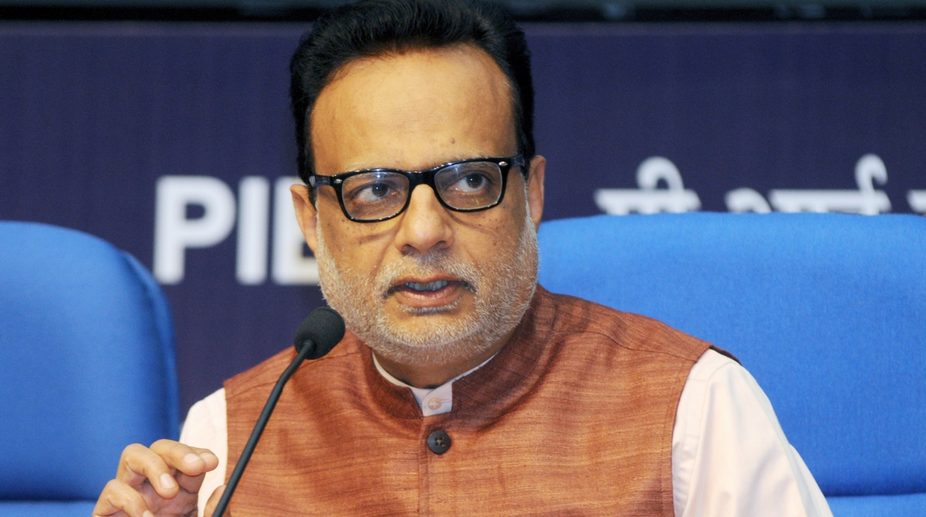Finance Secretary Hasmukh Adhia on Saturday said the recent reduction in GST rates on mass consumer goods items has resolved nearly 90 per cent of problems and discontentment related to the indirect tax regime.
According to Adhia, he does not foresees any immediate rate revisions after the latest changes which were incorporated after the last GST Council meet.
Advertisement
The GST Council last week had removed 178 items from the highest 28 per cent category and also reduced tax on all restaurants outside starred-hotels to 5 per cent.
Currently, only 50 products, including luxury and sin items, white goods, cement and paints, automobiles, aircraft and yacht parts have been retained in the top 28 per cent slab.
However, as and when required, rates on other items may be changed, Adhia said.
Adhia, who was speaking on DD News television channel, asked FMCG companies and retailers to sell products on the reduced rates as applicable from November 15.
He observed that anti-profiteering authority under the GST regime will ensure that the benefit of lower rates is passed on to consumers.
The anti-profiteering measures approved by the Union Cabinet on last Thursday are designed to ensure that the full benefits of input tax credits and reduced GST rates on supply of goods or services flow to the consumers.
On the inclusion of other sectors like petroleum in the GST structure, Finance Secretary said that the GST Council will take a call on it after the revenue trends of the indirect tax regeime are clearly established.
Elaborating on the medium-to-long term benifits of GST, Finance Secretary said that it will enable ease of doing business resulting in more investments. This he said will push the GDP growth higher and also increase tax buoyancy.
A high tax buoyancy will allow the government to directly help the MSME, agriculture and other sectors and would result in more job creation, he said.
On the Insolvency and Bankruptcy Code (IBC) and bank recapitalisation, he said that the two measures are expected to strengthen bank balance sheets and improve their ability to lend.
He added that country’s key economic parameters like low inflation, reduction in fiscal deficit and increasing tax buoyancy show that economy is in robust shape and that Union government in recent times has taken long-term structural reforms to increase the tax-to-GDP ratio and to curb tax evasion through the use of technology.











